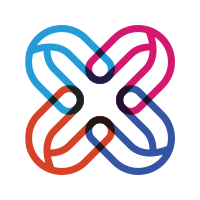The healthcare landscape is undergoing a significant transformation driven by technological advancements and evolving medical knowledge. Over the past few years, we’ve identified eight key trends that will profoundly reshape healthcare delivery. While we’ve discussed these trends individually in previous posts, this article aims to provide a comprehensive overview, benefiting both healthcare professionals and users.
1) Patient-Centric Care: Traditional hospital frameworks are evolving to make patients the focal point of care. Digital health tools, such as wearables and telemedicine, empower patients to monitor their vital signs and share data with healthcare providers, reducing the need for hospital visits. While hospitals won’t become obsolete, they’ll focus on disease prevention, acute care, and specialized procedures.
2) Globalized Healthcare: Companies like Atlas Biomed, Dante Labs, and AliveCor are breaking down geographical barriers, offering patients worldwide access to digital health services. However, achieving health equity remains a social challenge.
3) Remote Care Revolution: Remote care, including asynchronous telemedicine, is setting new standards in healthcare. The adoption of telemedicine accelerated during the COVID-19 pandemic, offering convenience and accessibility. It intersects with broader goals of decarbonizing healthcare pathways, making it more sustainable.
4) Patient-Designed Hospitals: Patient design, a shift from patient-centricity, actively involves patients in decision-making processes across healthcare, product development, research, and clinical design. It bridges the gap between scientific advancements and public health outcomes.
5) Tech Giants in Healthcare: Companies like Google, Amazon, Apple, and Microsoft are integrating AI, machine learning, and cloud computing to address complex health challenges. They focus on making healthcare more accessible and personalized, but privacy and regulatory issues persist.
6) Cultural Transformation: Healthcare is moving from a paternalistic model to a partnership-driven paradigm. Patients are more informed and proactive, using wearables and health apps to monitor their health. Technology catalyzes this cultural transformation.
7) Personalized Medicine: Advances in technology, genomics, and data analytics enable personalized medicine. Genetic testing reveals individual susceptibilities and informs treatment plans. Digital twins simulate treatment outcomes, accelerating the identification of optimal protocols.
8) New Medical Teams: Healthcare is becoming more collaborative, involving healthcare professionals, patients, and AI. Informed patients enhance decision-making, and AI serves as a force multiplier, assisting in diagnostics and treatment planning.
As we navigate these trends, the future of healthcare promises a more patient-centered, global, and technologically advanced system, offering personalized care, greater patient involvement, and a more sustainable, inclusive approach to well-being.












No Comments
Leave a comment Cancel